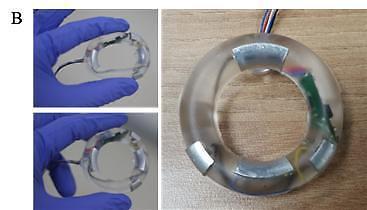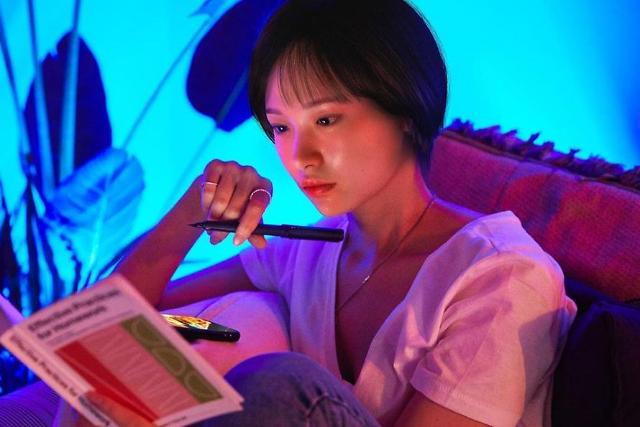
[Gettyimages Bank]
According to the National Statistical Office, online shopping transactions were up 19.1 percent on-year to a record high of 161.1 trillion won ($145 billion) in 2020. Shopping function based on virtual experience is utilized at off-line stores, online shopping malls and home shopping. A virtual fitting room enables shoppers to try on clothes to check one or more of size, fit, or style. 3D fitting rooms use computer-generated 3D images to create an experience similar to that seen in a virtual world computer game
Samsung C&T, a key Samsung Group unit involved in engineering, trade, fashion and resort businesses, has tied up with a research team from Pohang University of Science and Technology (POSTECH) to launch an all-in-one AI fashion curation service that makes "head to toe" recommendations such as bottoms, coats, shoes and bags if a customer chooses a top.
To minimize face-to-face contact, Samsung C&T's men's clothing brand selects products and sizes in advance through video calls and helps customers make quick purchase decisions by wearing products prepared in fitting rooms when they arrive. For customized non-contact services, safe and transparent screens were introduced.
With the help of T3Q, an AI digital platform company, golf wear brand Castelbajact adopted AI and big data technology for digital transformation and sought new business opportunities using VR, AR, digital studio and mobile (m)-commerce, which refers to purchases conducted over mobile devices. E-World's jewelry department and Vive Studios, a 3D graphics content company, work together for an AR online mall.
The adoption of new technologies gained speed in 2020. The home shopping channel of Lotte Group launched a virtual fitting service that allows shoppers to try on fashion accessories through mobile devices using AR technology. Musinsa, an online apparel shopping mall operator, opened a curated product suggestion service to offer a selection of clothes created by premium clothing brands.
Based on customers' basic information such as their age, gender and recent shopping history, South Korean web service giant Naver is testing an AI-based product suggestion service to offer personalized online shopping experiences. AI calculates how much a customer would favor a product by studying previous shopping patterns and preferences. Similar AI-based preference-matching services are provided by global online shopping giants including Amazon, the world's largest ecommerce operator, and Alibaba, China's top online shopping service operator.
Copyright ⓒ Aju Press All rights reserved.



